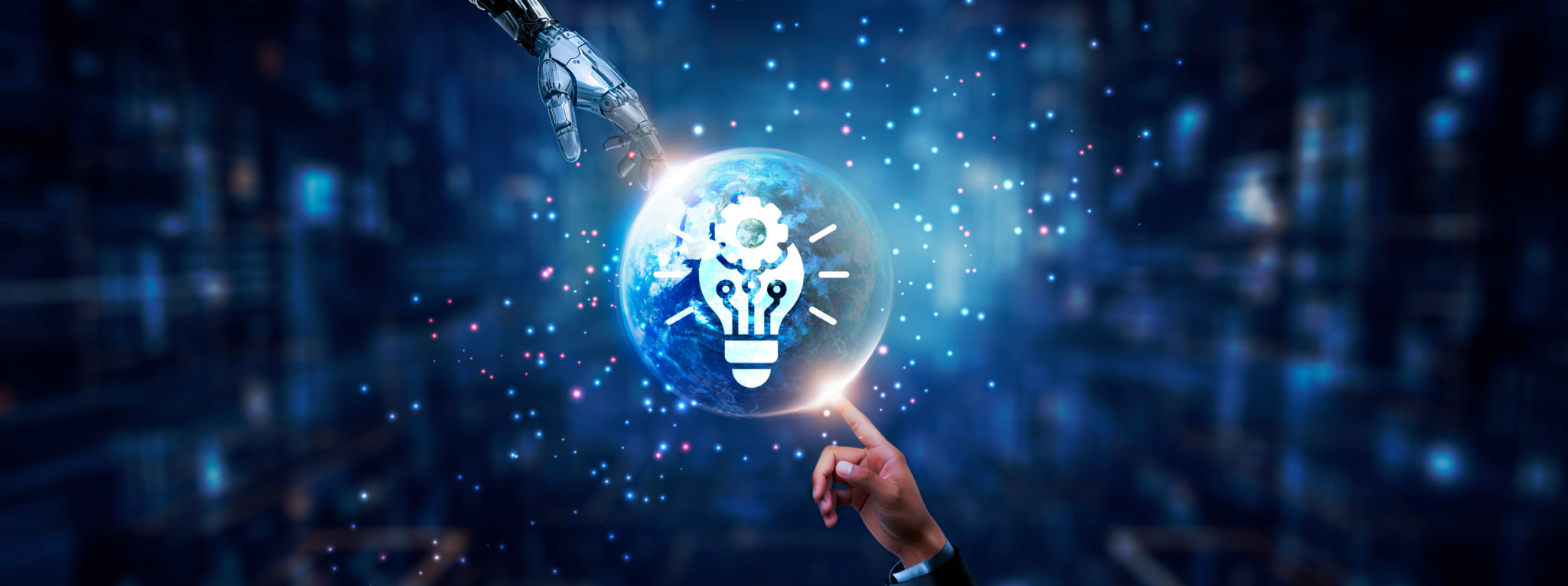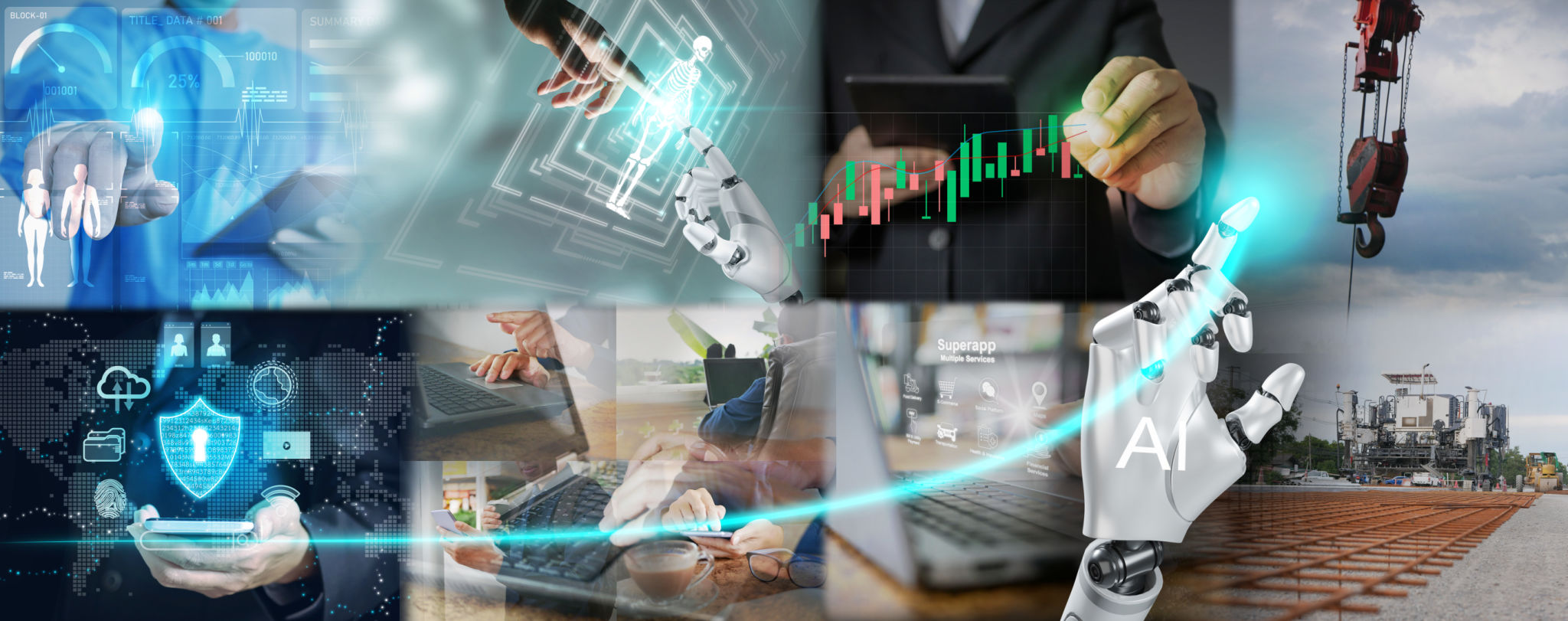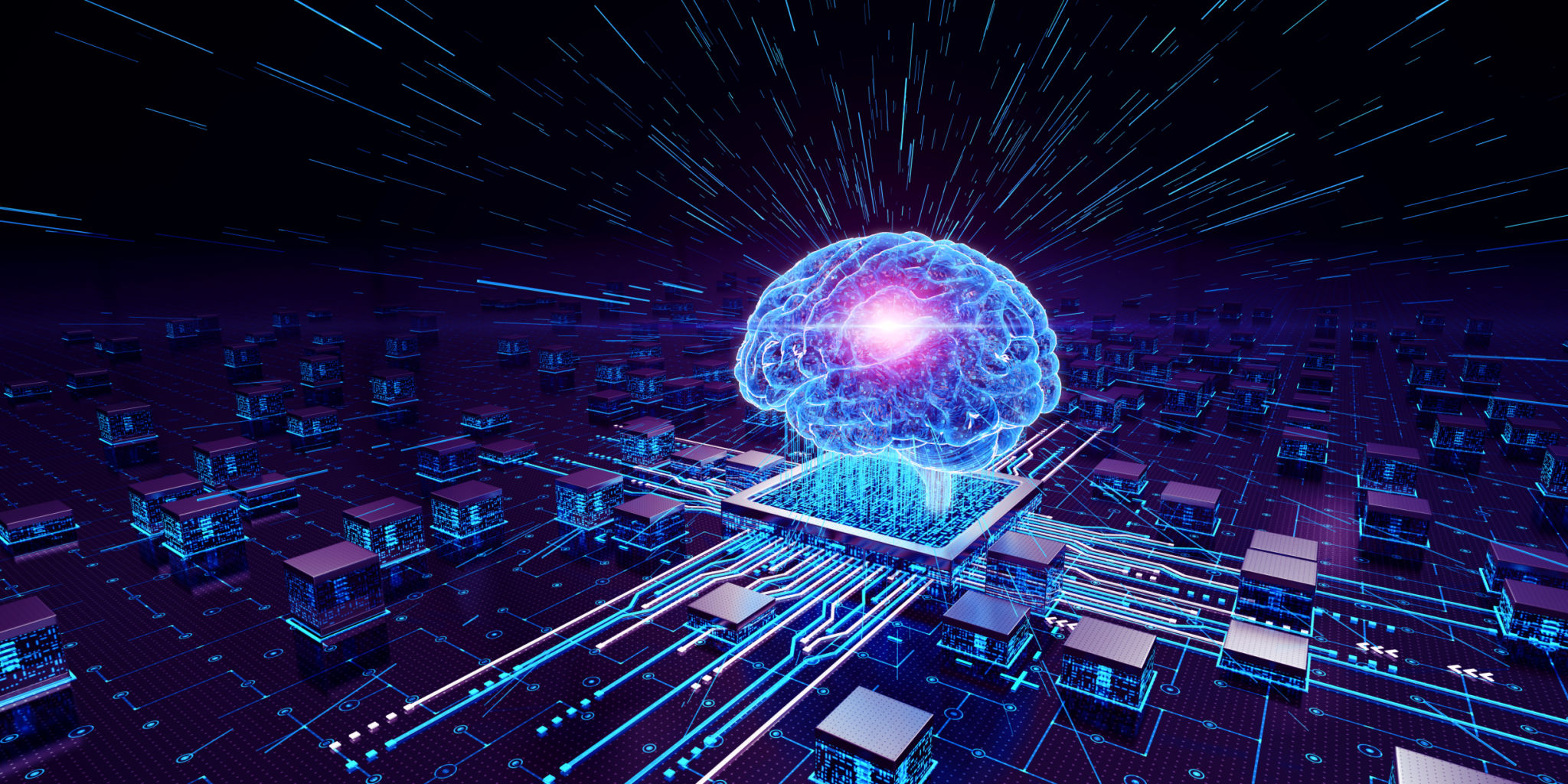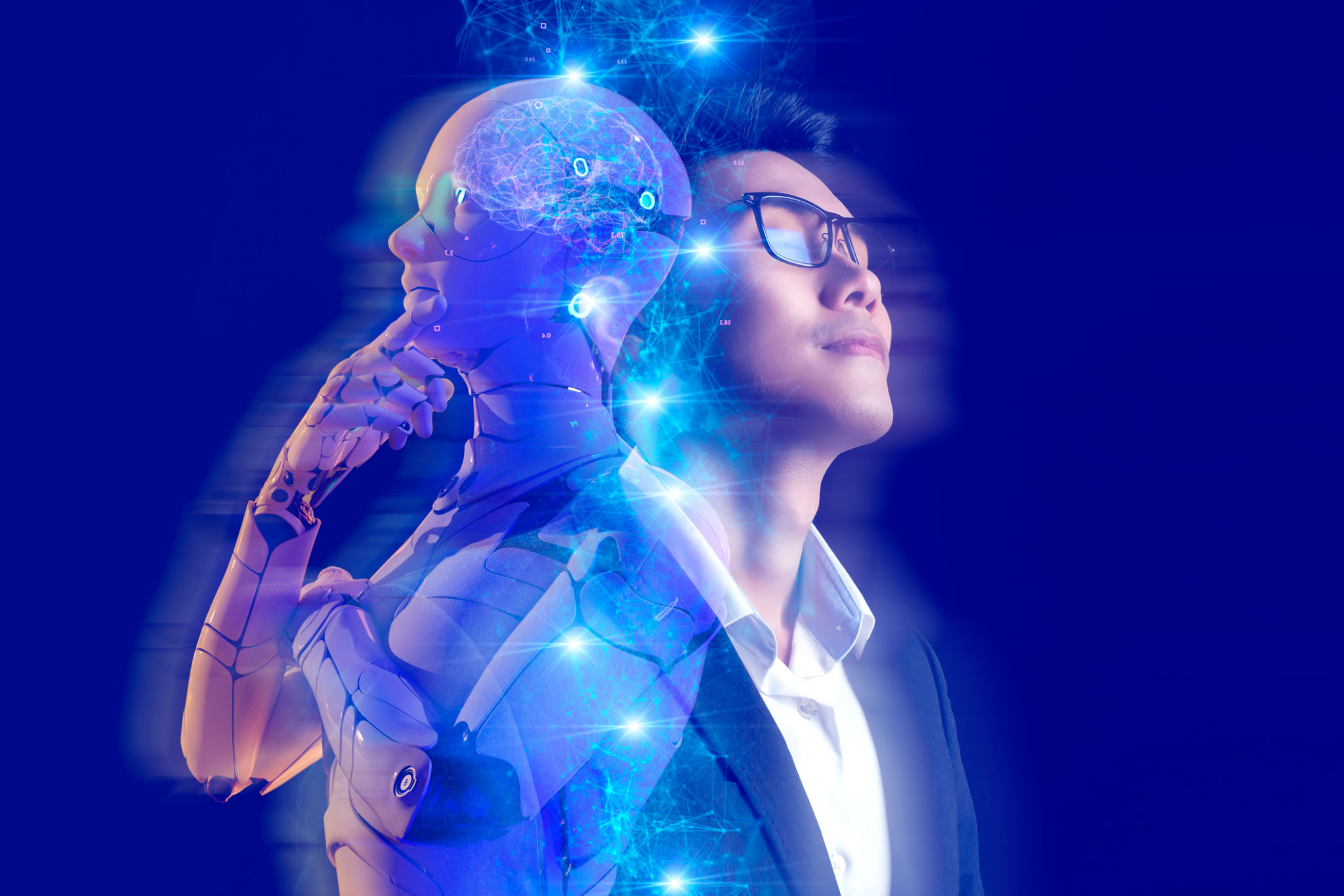The Power of AI: Transforming Industries and Redefining the Future
"

Artificial Intelligence (AI) is driving one of the most profound technological revolutions of our time.
Across industries, AI-driven innovation is creating smarter systems, streamlining processes, and enhancing decision-making capabilities. From personalised healthcare to advanced cybersecurity and autonomous financial systems, AI is unlocking unprecedented opportunities. With the AI market expected to reach £500 billion globally by 2028, its transformative role continues to reshape our world.
This article explores AI’s impact on key industries, its evolving role in cybersecurity, and innovations like digital twins and the Twin Protocol that push human-AI interactions to the next frontier.
The Impact of AI on Major Industries
AI in Healthcare

The healthcare sector is one of AI’s most promising frontiers. AI-powered diagnostic tools can detect diseases such as cancer at an early stage with remarkable accuracy. For instance, AI-driven platforms can analyse medical images to identify tumours that might go unnoticed by human eyes. Additionally, AI enables personalised medicine, tailoring treatments based on genetic data, lifestyle, and patient history.
Statistics reveal that 38% of healthcare providers already utilise AI tools for improved patient outcomes. From expediting clinical trials to supporting remote patient monitoring, AI in healthcare saves lives and reduces costs. Explore more about AI in Healthcare and its life-saving capabilities.
AI in Finance

AI is revolutionising the finance sector by automating trading, detecting fraud, and enabling personalised banking experiences. Machine learning algorithms can predict market trends with precision, empowering investors to make informed decisions.
By 2030, AI is expected to contribute an astonishing £12.5 trillion to the global economy, a testament to its economic potential. Fraud detection systems powered by AI continuously analyse transactional data to identify anomalies, safeguarding businesses and customers alike. For further insights, read Transforming Finance with AI.
AI in Retail
Retailers are leveraging AI to transform customer experiences and optimise operations. AI-driven recommendation engines, like those used by leading e-commerce platforms, analyse user behaviour to deliver personalised product suggestions, boosting sales.
AI in inventory management reduces wastage and ensures products remain in stock by predicting demand patterns. It’s estimated that AI could generate £320 to £530 billion in revenue increases within the retail industry over the next decade.
Emerging Role of AI in Cybersecurity

As cyber threats grow more sophisticated, AI plays a pivotal role in fortifying digital defences. Machine learning algorithms assess risks, detect anomalies, and respond to threats in real time, enhancing an organisation’s resilience to attacks.
AI can predict cyberattacks before they occur, offering pre-emptive solutions to protect sensitive data. For example, AI systems have successfully prevented massive data breaches by identifying vulnerabilities invisible to human analysts.
The AI cybersecurity market is projected to grow by 23.6% annually until 2027, reflecting its critical role in modern security frameworks. Businesses are increasingly relying on AI to handle the scale and complexity of cyber risks. To understand more about AI’s key role in securing the digital world, visit AI and Cybersecurity.
Simplifying Everyday Life with AI Twins
AI twins—virtual replicas of real-world systems or individuals—are transforming everyday life. By automating repetitive tasks, enhancing productivity, and reducing mental workload, AI twins serve as digital assistants tailored to users’ needs.
Platforms like Twin Protocol take this concept further by creating AI-driven digital representations that mirror our behaviour, preferences, and decision-making processes. For example, an AI twin could automate your work schedule, manage emails, and help organise personal tasks, saving hours of productivity each week.
This technology also reduces stress by simplifying decision-making processes. The potential applications of digital twins extend across industries, from virtual simulations in engineering to personal wellness applications for individuals.
Twin Protocol: Revolutionising Human-AI Interactions

Twin Protocol represents the cutting edge of human-AI integration. By leveraging blockchain-based AI, it offers secure, decentralised platforms where users retain control over their digital identities.
One of Twin Protocol’s standout features is Twin Vault, which ensures robust data privacy while enhancing the security of AI models. Collaborations with leading innovators like SingularityNET demonstrate its commitment to creating ethical, user-focused AI solutions.
Twin Protocol focuses on emotional nuances and personalised AI strategies, allowing for enhanced decision-making, creativity, and performance. For businesses, this technology delivers seamless automation while retaining human-like intuition.
The benefits of such advancements are twofold: individuals gain an AI-driven assistant to simplify their lives, while organisations can create smarter workflows, optimising productivity across sectors.
The Future of AI: Uncharted Potential
The future of AI holds limitless possibilities. AI is set to become a transformative partner in education, where personalised learning pathways adapt to a student’s strengths and weaknesses. In manufacturing, AI’s predictive analytics streamline production processes, minimise downtime, and reduce costs.
Innovations in AI-driven robotics and cognitive computing are also pushing boundaries, with machines able to perform tasks requiring reasoning, problem-solving, and emotional intelligence.
While the current applications of AI are extraordinary, we are only scratching the surface of its potential. Industries will increasingly rely on AI-powered solutions for growth, efficiency, and innovation, further cementing AI’s role as a driving force of the digital era.
Conclusion
AI’s transformative impact spans industries, from healthcare and finance to retail and cybersecurity. Its ability to drive efficiencies, improve decision-making, and create personalised solutions makes it indispensable for modern businesses and individuals.
Innovations like digital twins and blockchain-based protocols such as Twin Protocol are pushing AI’s capabilities even further, enabling secure, ethical, and highly personalised interactions. As AI continues to evolve, it promises to revolutionise our world in ways we can only imagine.
To stay ahead, businesses and individuals must embrace AI as a transformative partner. The future belongs to those who integrate and innovate.
Frequently Asked Questions (FAQ)
1. What is AI, and why is it important?
AI refers to machines or systems that simulate human intelligence to perform tasks like learning, problem-solving, and decision-making. Its importance lies in driving innovation, enhancing efficiency, and enabling personalised solutions across industries.
2. How is AI transforming the healthcare industry?
AI improves healthcare through advanced diagnostics, personalised medicine, and efficient clinical trials, leading to better patient outcomes and cost savings.
3. What are AI twins and their applications?
AI twins are virtual replicas of real-world systems or individuals. They automate tasks, enhance productivity, and simplify decision-making in both personal and professional settings.
4. How does AI enhance cybersecurity?
AI detects threats in real time, analyses risks, and predicts cyberattacks, providing intelligent, pre-emptive security solutions for businesses and individuals.
5. What sectors are most impacted by AI?
Industries such as healthcare, finance, retail, cybersecurity, manufacturing, and education are seeing the most significant impact of AI-driven innovations.
6. How does Twin Protocol ensure data privacy?
Twin Protocol leverages blockchain-based AI to ensure decentralised, secure control of digital identities, providing robust protection against data breaches.
7. What is the future potential of AI?
The future of AI includes personalised education, smarter manufacturing, advanced robotics, and AI solutions capable of reasoning and emotional intelligence, revolutionising all aspects of life.
By exploring AI’s transformative role and its future potential, we unlock opportunities for innovation, efficiency, and growth across every sector. The AI revolution is exploding and whilst technology continues to move at such a pace, don't get left behind start small and develop your AI skills to improve your own productivity.
